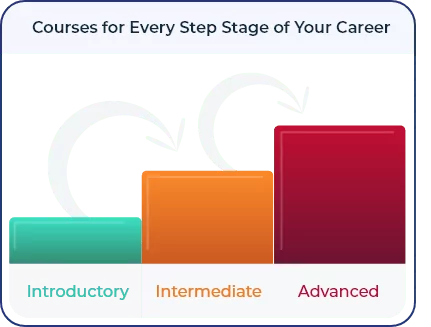On this page:
- Benefits of Project Management in Organizations
- Challenges Faced by Small Projects and Scope Management
- The Value of Established Project Management Tools and Techniques
- Key Elements for Effective Project Management in Small Projects
Is project management a good thing? Given that Velopi offers training at all levels of project management, the answer to this is obviously yes. But if you are not a Project Manager then you are likely to want a more convincing argument that just taking our word for it.
Benefits of Project Management in Organizations
Bigger organizations, where very large projects are run, tend to take project management seriously. When you are investing several million Euro in a project, it makes sense to have clear visibility on its progress – it is unlikely that you will sign a few blank cheques and let the team off with it. Also, if your organization is subject to the U.S. Sarbanes Oxley legislation, you will have to declare investments in your large projects.
Unfortunately, while large projects tend to be carefully managed, smaller projects often cause problems. Think of replacing a machine on an assembly line with a new model; upgrading the operating system on your computers or re-arranging your warehouse to make finding things easier. Some of these smaller projects could take one person a few hours work but, if not managed, can cause a great deal of problems.
Challenges Faced by Small Projects and Scope Management
The biggest issue for small projects is scope creep. Because the project is small, the person (or small team) assigned the work is likely to get an informal statement of work – this is what we want, get on with it. However, because no detailed analysis has been done on the requirements, it is likely that some aspects of the work get forgotten. For instance, a fitter might be tasked with installing a new machine. S/he might do a perfect job, but now the line workers are faced with a machine they do not know how to use. So a training project is launched on the fly. Then there is maintenance to consider – does anyone know how to fix this new gadget?
Of course, a small project should not be overwhelmed by the project management overhead necessary for a full-blown, multi-million Euro venture. However, it makes sense to use established project management tools and techniques to arrive at common understanding and buy in among the stakeholders, as well as ensuring that everyone knows how the project is progressing and what it has achieved.
The Value of Established Project Management Tools and Techniques
For a small project, formal documents might be overkill, but going through the project management processes – as described in the Guide to the Project Management Body of Knowledge (PMBOK® Guide) – does make a lot of sense.
We might not have a Project Charter, but we do need to have someone in authority (a Project Sponsor) authorizing the work. Even if that Project Sponsor is the only other person involved, it is worthwhile considering who is going to be affected by this work. In the previous example, no one considered what the impact of the new machine would have on the operators. In other words, we need to Identify Stakeholders.
We might not have a full Scope Statement but we should take the time to write down what we think is in scope and, maybe more importantly, what is not in scope. Return to the sponsor and get agreement on your understanding. A Work Breakdown Structure might be a bit much for a project with a handful of tasks, but it is good discipline and can show up gaps in our thinking.
Key Elements for Effective Project Management in Small Projects
Scheduling might seem a waste of time, particularly on a one wo/man project, but remember the Sequence Activities process from your PMP® training? Take the time to look at your work and decide on a logical ordering. A little reflection at this point could save a lot of rework down the line. Similarly, the Estimate Activity Resources process will help us get the equipment and materials lined up ready for the work.
Having gone to the trouble of clarifying what you are to do improves your chances of doing it to everyone’s satisfaction. However, you must remember to keep your stakeholders informed. For instance, if your project is to replace a machine on a busy assembly line, you need to sit down with the line supervisor and explain what will be involved in the switchover. You might, for instance, be able to train up operators when the machine is working, but not integrated into the line yet. Your go-live milestone may well be delayed due to production schedules. Going through the scheduling processes can prevent a lot of toes from being trampled on.
Finally, check that you have completed all that you have set out to do If your Project Sponsor, or any of your stakeholders want to know what you have been doing, then you should be able to show everything you have done in terms of your original scope statement. In other words, you might consider developing a little Requirements Traceability Matrix.
Small projects rarely are subject to formal risk analysis, but a wise Project Manager will include a section on risk in the Scope Statement. Note down any uncertainties in the project. If you are awaiting deliveries, or need access to some equipment, these could all interrupt your work if something went wrong. Identifying risks early in a project allows you to take steps to ensure problems do not arise, or at least do not have a disastrous effect if they do.
Knowing about stakeholders, scope, schedule and risk planning, as well as understanding the need to report progress and confirm that the required work is actually done will provide enough project management for a little project.
Velopi’s basic 1-day Introduction to Project Management and 2-day PM Essentials courses provide enough project management to guide small projects effectively through to completion. For more details of these courses, please visit our training page, or contact us directly.

















